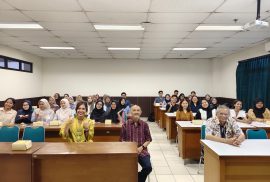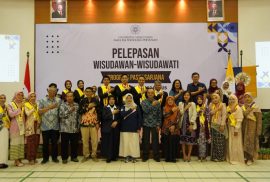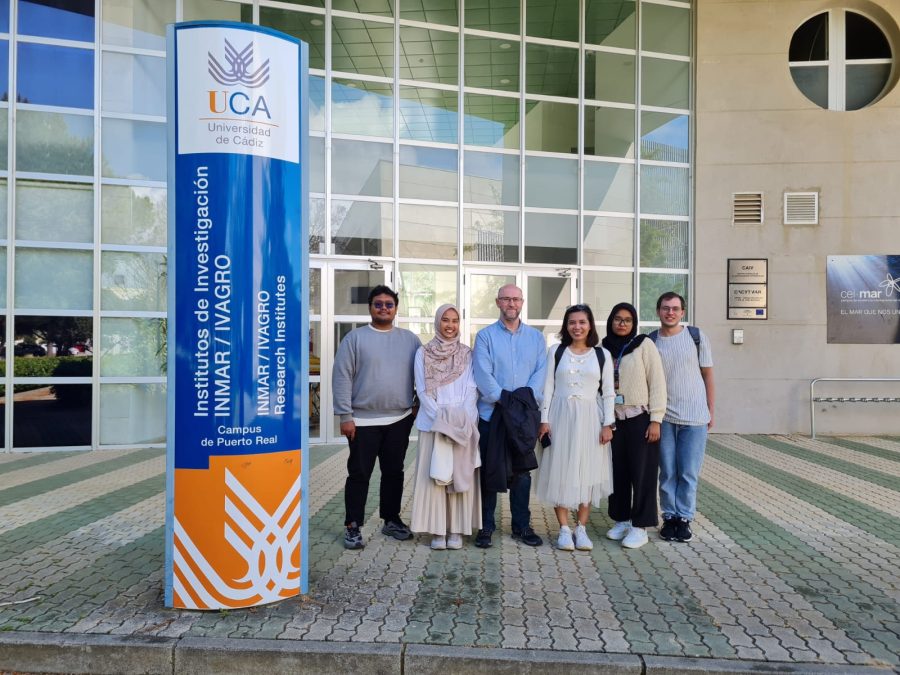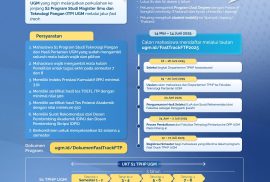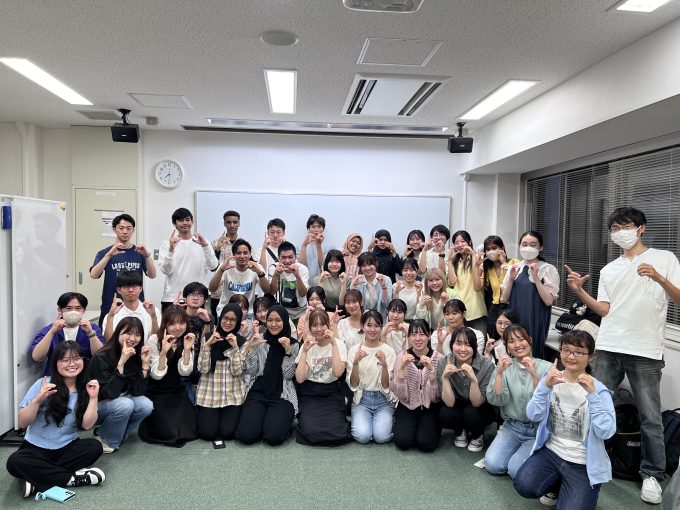
The experience shapes new perspectives and broader insights, generating enthusiasm to fulfill other new curiosities. That’s what Firarosa Asida, a Master of Food Science and Technology (MFST) UGM, felt when she successfully completed half of her studies in the Land of the Rising Sun. Becoming a selected candidate for the SUIJI Joint Program for Master Student 2024 was an opportunity that she did not expect to taste. SUIJI JP MS is a cooperation program in the form of a consortium between three Japanese universities (Ehime University, Kagawa University, Kochi University) and three Indonesian universities (IPB University, Gadjah Mada University (UGM), and Hasanuddin University). The program is managed by the Japan Student Service Organization (JASSO) with a selection process held at each home university. Selected students will be able to take part in master’s studies at the Japanese university concerned in one period (8 days to one year according to applicable regulations).
The Japanese universities in the SUIJI Joint Program for Master Students are located on Shikoku Island. In addition to conducting their final research, international students can choose several compulsory courses and an elective course. In order to decide which university to study at, students are required to select a faculty advisor among the universities that suits their interests and academic aspirations.
After being declared as a candidate in the SUIJI JP MS program, Firarosa then determined the supervisor who would mentor her in academic and thesis research by researching the publications of lecturers in Japan. Through her findings, a publication by an Ehime University lecturer named Takuya Sugahara caught her attention. Sugahara-sensei’s research was aligned with his academic aspirations, specifically in functional food science with animal cell media testing, which led her to study at Ehime University.
Firarosa not only completed research related to her thesis, but also took compulsory and elective courses at Ehime University as a foundation for her research. Firarosa also took tropical science, special research, and special seminar as compulsory courses and the only elective was cellular regulation technology. All courses are run from May to August 2024, while the end of the special research course coincides with the period of the student mobility program.
- Thesis Journey to Investigate Anti-Allergic Effect
Firarosa also shared her research journey in Ehime University under Sugahara-sensei mentorship.
“The title of my research is Anti-allergic effect of kefir from goat milk with L. plantarum Dad-13: In Vitro Evaluation using cell line rat bacillus leukemia (RBL-2H3 cell). My laboratory in Japan was Animal Cell Technology, where I cultured RBL-2H3 cells every two days so that the cells could continue growing well.
“The stages of my research began with sample preparation in powder form, which I had done in Indonesia. Where the sample was mixed with distilled water and left overnight after centrifugation. Then, the sample was adjusted to a pH of around 7.4 and dried in a freezer for 2 days. After that, the sample was dissolved in sterile distilled water and used for anti-allergic testing. Anti-allergic testing has stages, namely testing degranulation activity using the beta-hexosaminidase enzyme and then checking the cytotoxicity of my sample on RBL 2H3 cells using WST-8. I evaluated the decrease in calcium ion concentration and microtubule formation; after that, I examined the signaling pathways of my samples using immunoblot analysis.”
It wasn’t feel overwhelmed and complicated for her because the laboratory assistant of Animal Cell Technology was assisted and taught well about the stages of anti-allergic research.
- Another Event, Another Perspective
Firarosa gained a lot of valuable experience while at Ehime University. Their friends, supervisor, laboratory assistant, and the others helped and supported her a lot. Japanese citizen and students taught her about disciplined, always on time, and hard workers. She also joined Japanese culture event, language class, and visited to many destination in Japan. During the entire activities besides of study program, she have learned culture and gained new insight.
“In the meantime, I participated in a field trip about Japanese culture and attended several Japanese language classes. It was very interesting because I could see firsthand how matcha is made, learn about their beliefs, visit museums, and even get traditional clothes, such as Japanese kimono. All these precious experiences have made me even more enthusiastic in becoming a disciplined, honest, and curious researcher,” said Firarosa, reminiscing her Master’s Degree journey.
Notes: Javadwipa (or Yawa-dwipa) is a title for the island of Java, which means an island that is prosperous for its rice crop or the most fertile land in the world. Source: J. Oliver Thomson (2013). History of Ancient Geography. Cambridge University Press. pp. 316-317. ISBN 9781107689923.
Penulis: Firarosa Asida
Editor: Adiba Tsalsabilla

